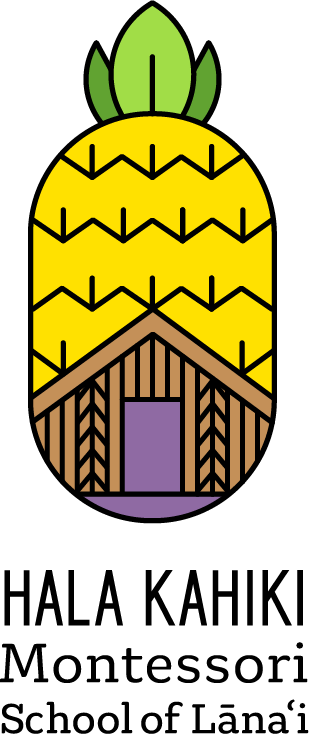For many families and cultures around the world, December is a time of giving and receiving gifts, food, and love. Whether it is a physical gift or an intangible one, we need to be intentional with our expectations for the young child during the holiday season.
Young children, under the age of 6 years old, are impulsive and honest by nature. They have not yet learned some of the social norms that adults come to understand – like what to do if they don’t like a present, or don’t feel like giving Grandma a hug and kiss. Their transparency can come across as disrespectful to the unknowing adult.
How do we help the young child learn how to give and receive with grace?
PREPARE THE CHILD
Before the gift giving holiday that your family celebrates, practice giving and receiving. Children from 3-6 years old love role modeling and practicing such events. Talk to your child about what to expect, how to say thank you, and what to do if they don’t like the gift.
We can role play here using language like this:
“When someone give me something as a gift, I tell them thank you or mahalo, even if I don’t like the gift. Let’s practice together. You be the giver and I’ll be the receiver, and then we will switch.”
For the child from 1.5-6 years old we can invite them to take part in the preparation of giving. Allow them to wrap some presents, write or decorate their own cards and help carry or deliver gifts to family, friends and loved ones. Think of an item you can make together to share with others, whether it’s something from the kitchen (young children love to bake and cook!) or something handmade.
PREPARE THE ADULTS
As a parent or caregiver to young children it is our responsibility to communicate with the adults in our child’s lives about their unique and individual boundaries. Some children will give hugs and love to anyone they see, while others will withdraw and hide, even from family members they know and love.
When we help the other adults understand each child’s unique needs, we help the child feel safe.
We can use language like this:
“They aren’t comfortable giving hugs right now. Can you offer a high five or a wave. As they warm up to you, you might get a hug. We need to be patient and let them have some time to get comfortable.”
We can then offer the child language like this:
“It’s okay if you don’t want to give Grandma a hug right now. If you change your mind, you’re welcome to ask her if she’d like one later.”
We love the book “Yes, No, First Conversations About Consent” from the First Conversations Book Series to help adults guide these important conversations.
MODEL GRATITUDE
The best way for young children to learn about gratitude and how to show it is by watching the people around them. If you want your child to say “thank you” be sure that you are also saying thank you. The child does not learn to say thank you by being told to do so. In fact, when we tell the child what to say, it can lose some of its meaning. Plus, it can be uncomfortable for the giving adult to see a child being forced to say thanks.
We can use language like this:
“Remember when we practiced giving gifts? What did we say after we gave each other a gift? Thank you! You’re right. And what did we say to each other after that? You’re welcome. Yes!”
“When someone gives me a present, I make sure to tell them thank you. What do you do when someone gives you a gift?”
BE PATIENT, UNDERSTANDING AND SUPPORTIVE
The holiday season can be overstimulating for the young child. It is important that we allow them grace through this time of year. A disregulated, disappointed, or overstimulated child does not equal an ungrateful child. Behavior is communication, so if you notice your child having big feelings that is an opportunity to connect with them.
Try to refrain from disciplining your child in the moment when and if they show unpleasant feelings towards their gifts. Instead, meet them where they are.
We can use language like this:
“I see you are feeling upset. Sometimes I feel this way too. Let’s go outside and calm down.”
Young children are not emotionally mature enough to understand feelings of disappointment, jealousy, and frustration. It is the adult’s role to help them navigate these new and uncomfortable feelings without fear of punishment.
WRITE THANK YOU CARDS
Invite your child to help write or color thank you notes. This is a beautiful way to express our gratitude after receiving gifts.
Did your child give you a gift this year? You can make them a thank you card too! Remember, they learn gratitude from us, so when in doubt - model, model, model.
CELEBRATE WHAT YOU DO HAVE
After the holidays are over and life starts to return to its regular pace, we can continue the conversation about gratitude, celebrating the big and small parts of life that bring us joy.
I am grateful for our home.
I am grateful for this food.
I am grateful to be healthy.
I am grateful for my family.
I am grateful to live on the island of Lāna’i.
I am grateful for my teachers and school.
I am grateful for my friends.
I am grateful for you.
What are you grateful for?
About Hala Kahiki
Designed for children 18 months – 6 years, Hala Kahiki is the first and only authentic Montessori school on Lāna’i. Under the guiding influence of specially trained teachers, children work with multi-sensorial materials to help them learn to think critically and become well-rounded global citizens. We would love to partner with you to give your children the best-possible early childhood education; please let us know how we can help you achieve your goals for your child.




